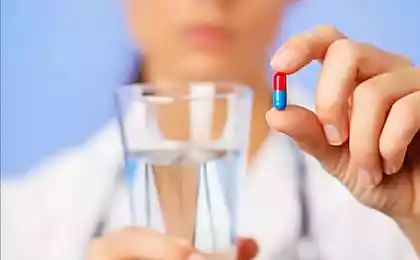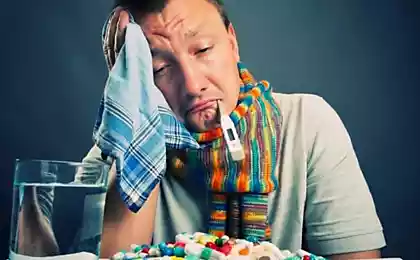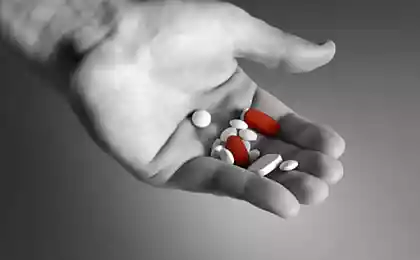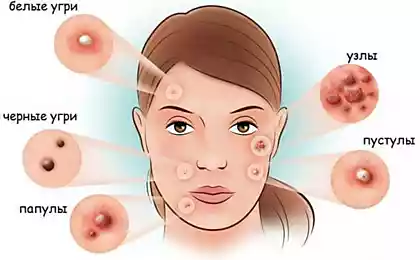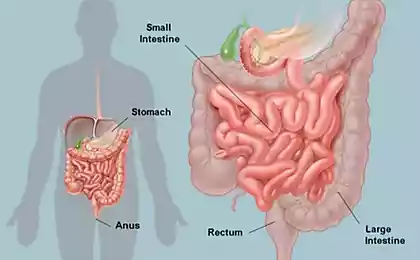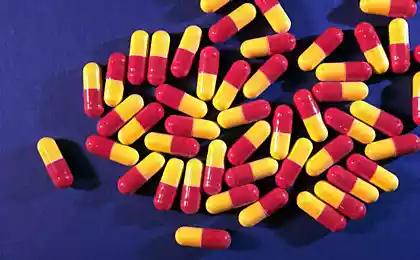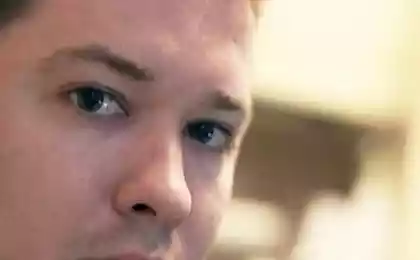864
Antibiotics do not work anymore: why it happened and what to do
Humanity still has a couple of aces up rukavahZa 20th century we used to fight bacterial infections with antibiotics, before it worked. But all life evolves, and bacteria, too. There is a possibility that antibiotics have to give up just because they finally stop to help. But this does not mean that humanity would perish immediately before such a scenario is far from us. Let's try to look forward and think about what alternatives we have.
1. Bacteria pobezhdayut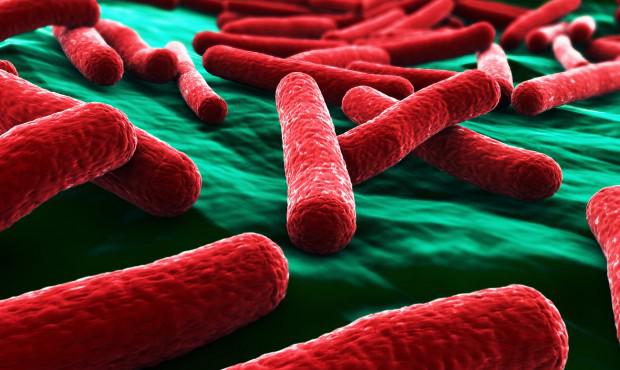
Like all living organisms, bacteria are just trying to survive, so over time to adapt to the environment. Among all the bacteria that cause the same disease, there may be minor genetic differences that may make one more susceptible to drugs and others - less. More susceptible bacteria are killed first, and are less susceptible, multiply, and as a result, the light appears a new generation of bacteria that can resist antibiotics better. Simply put, there is a process of evolution, humanity is at hand or not.
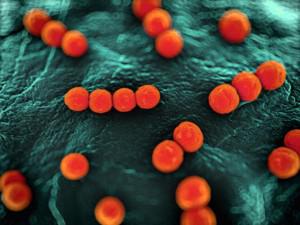
As a result of this process appears generation of bacteria able to withstand perfectly any antibiotics. This means that the most modern medicine works today, and tomorrow is gone. As a result, patients are given not cure, resulting in numerous deaths.
The most widespread and tenacious "super bacteria" - is methicillin-resistant Staphylococcus aureus (MUZS). For many decades to fight constantly mutating strain was virtually impossible until developed new methods of treatment.
Equally quickly become resistant to drugs live in the gut bacteria (eg, E. coli and Klebsiella) and gonorrhea. One of the worst examples of drug-resistant bacteria - a tuberculosis, universal treatment is not there. Such super-bacteria are increasingly forcing us to rethink our approach to treatment in general.
2. bacteriophages: viruses will eat bakterii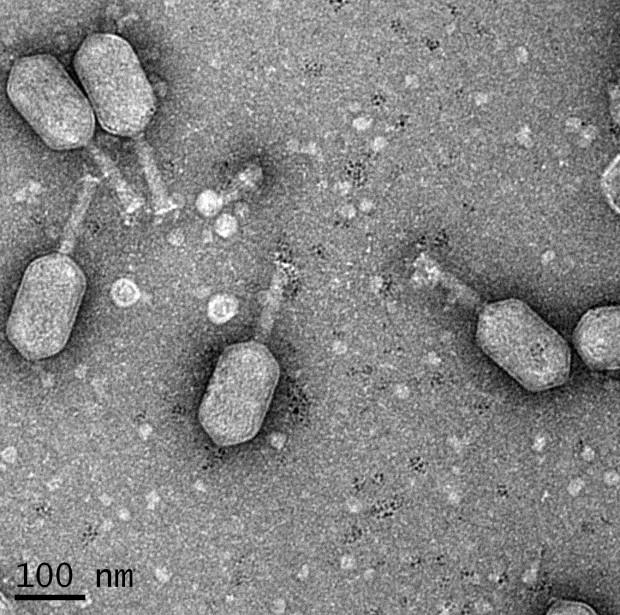
So, let's have won the super-bacteria antibiotics do not help. What's next? Alternatively, throw all the power and the best minds to develop new, stronger antibiotics. But ultimately these drugs bring the body more harm than good - not only attack bacterial cells, but also normal, healthy cells in the body.
There are viruses that infect bacteria. They are called bacteriophages. Once you get into the cells of bacteria, phages use their own mechanism for division and divide until they fill the entire bacterial cell and that will not burst like a balloon. The advantage of this therapy is that the phage to evolve with the bacteria, and hence the immunity to bacteria acquire them. In addition, bacteriophages very selective: they can send it to those harmful bacteria to be killed, everything else they have not touched.
To reduce the risk to the patient to a minimum, it is possible to use not the whole bacteriophage entirely, but only the enzymes. Bacteriophages produce enzymes called lysine, corroding the cell walls of bacteria, until they vskroyutsya not fall apart, killing the infection.
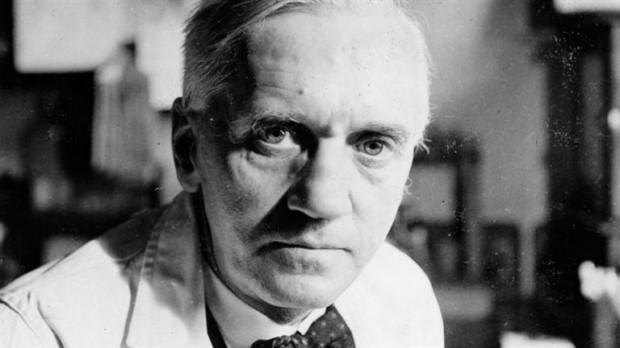
By the way, we could fight bacteria that way, with the help of viruses. But Alexander Fleming discovered penicillin and thus sent us to "the era of antibiotics." Now, apparently, the era is about to end, so that we will invest in viruses to assist us in the fight against bacteria.
3. Bacteriocins and special peptides - one more weapon in this voyne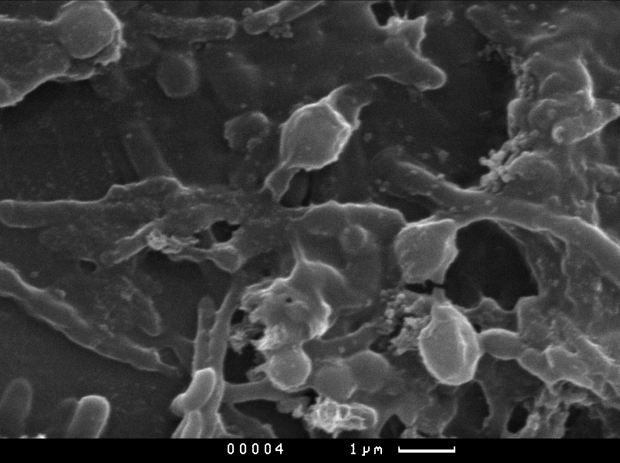
Some bacteria produce toxins antimicrobial called bacteriocins, which can be used to kill their own kind, especially when they are in a confined space and the food was not enough. Every man for himself, so that the body started deliberately bacteria will "shoot" bacteriocins in relatives that caused the infection. Result: the bad bacteria are dead, the infection is defeated, a man happy.
Another promising alternative to antibiotics - a cationic or antimicrobial peptides. This mini-proteins are able to break the bacterial clusters, break the link between bodies and kill bacteria. An additional advantage of the peptides also in the fact that they can stimulate the human immune system, the body itself to subsequently effectively fought hard exterminable infection.
Strengthening the immune system may in the future be a key component in the fight against infections. To do this, the researchers are studying not only the cationic peptides. It can be effective as human antibodies that can detect malicious alien cells and send signals to the immune system: to destroy. Clinical studies of this method demonstrate impressive results.
4. How to be treated now and then, when antibiotics will bespolezny
To start, let's use our main weapon: rest, drink plenty of fluids, exercise. All this strengthens the immune system, and thus makes us less susceptible to infections. It works now, and will operate in a world without antibiotics. And, as corny as it may sound, wash your hands after coming off the street and when preparing food. In particular - when preparing a meal.
Finally, it will require some changes in the approach to antibiotics. Many bacteria are resistant to a variety of drugs. To make the smallest possible contribution to the development of bacteria, need to take the medication carefully now. Give your body a chance to win an infection before swallowing handfuls of pills. If you do not bomb the bacterial drugs, they can not develop a resistance, and the body is often able to defeat the infection without assistance.
But if I started taking the medicine, it is important to drink the entire course. It is usually this: we start taking the medicine, we feel better and throw. What if everything is okay? But the body could remain aspiring bacteria that can resist antibiotics and therefore thrive, reproduce and acquire immunity. We need to stop this behavior - go to the end of treatment.
via factroom.ru
1. Bacteria pobezhdayut

Like all living organisms, bacteria are just trying to survive, so over time to adapt to the environment. Among all the bacteria that cause the same disease, there may be minor genetic differences that may make one more susceptible to drugs and others - less. More susceptible bacteria are killed first, and are less susceptible, multiply, and as a result, the light appears a new generation of bacteria that can resist antibiotics better. Simply put, there is a process of evolution, humanity is at hand or not.

As a result of this process appears generation of bacteria able to withstand perfectly any antibiotics. This means that the most modern medicine works today, and tomorrow is gone. As a result, patients are given not cure, resulting in numerous deaths.
The most widespread and tenacious "super bacteria" - is methicillin-resistant Staphylococcus aureus (MUZS). For many decades to fight constantly mutating strain was virtually impossible until developed new methods of treatment.
Equally quickly become resistant to drugs live in the gut bacteria (eg, E. coli and Klebsiella) and gonorrhea. One of the worst examples of drug-resistant bacteria - a tuberculosis, universal treatment is not there. Such super-bacteria are increasingly forcing us to rethink our approach to treatment in general.
2. bacteriophages: viruses will eat bakterii

So, let's have won the super-bacteria antibiotics do not help. What's next? Alternatively, throw all the power and the best minds to develop new, stronger antibiotics. But ultimately these drugs bring the body more harm than good - not only attack bacterial cells, but also normal, healthy cells in the body.
There are viruses that infect bacteria. They are called bacteriophages. Once you get into the cells of bacteria, phages use their own mechanism for division and divide until they fill the entire bacterial cell and that will not burst like a balloon. The advantage of this therapy is that the phage to evolve with the bacteria, and hence the immunity to bacteria acquire them. In addition, bacteriophages very selective: they can send it to those harmful bacteria to be killed, everything else they have not touched.
To reduce the risk to the patient to a minimum, it is possible to use not the whole bacteriophage entirely, but only the enzymes. Bacteriophages produce enzymes called lysine, corroding the cell walls of bacteria, until they vskroyutsya not fall apart, killing the infection.

By the way, we could fight bacteria that way, with the help of viruses. But Alexander Fleming discovered penicillin and thus sent us to "the era of antibiotics." Now, apparently, the era is about to end, so that we will invest in viruses to assist us in the fight against bacteria.
3. Bacteriocins and special peptides - one more weapon in this voyne

Some bacteria produce toxins antimicrobial called bacteriocins, which can be used to kill their own kind, especially when they are in a confined space and the food was not enough. Every man for himself, so that the body started deliberately bacteria will "shoot" bacteriocins in relatives that caused the infection. Result: the bad bacteria are dead, the infection is defeated, a man happy.
Another promising alternative to antibiotics - a cationic or antimicrobial peptides. This mini-proteins are able to break the bacterial clusters, break the link between bodies and kill bacteria. An additional advantage of the peptides also in the fact that they can stimulate the human immune system, the body itself to subsequently effectively fought hard exterminable infection.
Strengthening the immune system may in the future be a key component in the fight against infections. To do this, the researchers are studying not only the cationic peptides. It can be effective as human antibodies that can detect malicious alien cells and send signals to the immune system: to destroy. Clinical studies of this method demonstrate impressive results.
4. How to be treated now and then, when antibiotics will bespolezny

To start, let's use our main weapon: rest, drink plenty of fluids, exercise. All this strengthens the immune system, and thus makes us less susceptible to infections. It works now, and will operate in a world without antibiotics. And, as corny as it may sound, wash your hands after coming off the street and when preparing food. In particular - when preparing a meal.
Finally, it will require some changes in the approach to antibiotics. Many bacteria are resistant to a variety of drugs. To make the smallest possible contribution to the development of bacteria, need to take the medication carefully now. Give your body a chance to win an infection before swallowing handfuls of pills. If you do not bomb the bacterial drugs, they can not develop a resistance, and the body is often able to defeat the infection without assistance.
But if I started taking the medicine, it is important to drink the entire course. It is usually this: we start taking the medicine, we feel better and throw. What if everything is okay? But the body could remain aspiring bacteria that can resist antibiotics and therefore thrive, reproduce and acquire immunity. We need to stop this behavior - go to the end of treatment.
via factroom.ru
On the verge of art and science: the picture of the ferrofluid
If you are in trouble - refer to their "distant" and not close friends

